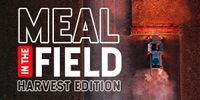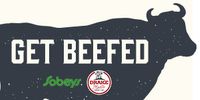Saskatchewan's New legislation around Animal Production Regulations consolidates four existing Acts related to animal production into one.
It also reduces ten sets of regulations into a single set, which reduces the red tape and simplifies the legislation.
Agriculture Minister David Marit says these changes are a positive step toward modernizing and streamlining regulatory processes for producers
A key change in the New Animal Production Act is that now requires all wild boar farms to be licensed and inspected, and includes a moratorium on any new wild boar farms.
Sask Pork Chair Toby Tschetter says Sask Pork is pleased to see the province's commitment to regulate wild boar farms.
He notes that the new oversight of these operations will position the province and the pork industry to better respond to wild boar escapes and potential animal disease outbreaks.
Other updates to the act include legislation around stray livestock, as well as new transportation and inspection standards.
The changes include clearer requirements for livestock inspection and transportation standards, with the requirement that animals, when being transported, must be accompanied with documentation that specifies the premises identification numbers for the animal's point of origin and destination.
Livestock Services of Saskatchewan (LSS) CEO Jason Pollock says the updated regulations will allow LSS to communicate more clearly with its stakeholders and help in their enforcement activities.
Changes in the act also give rural municipalities more flexibility to address stray animals in their area.
As well, the Province has made a change to it's Guardian Dog Rebate Program, which is available through Saskatchewan Crop Insurance Corporation.
The rebate for eligible livestock guardian dogs under the Wildlife Damage Compensation and Prevention Program is increasing from a maximum rebate of $100 per dog to $400 per dog.
The increase will be retroactive starting April 1, 2024.
Saskatchewan Sheep Development Board Executive Director Gord Schroeder says predation is a significant challenge for livestock producers and this will make purchasing a guard dog more affordable and reduce livestock losses.















